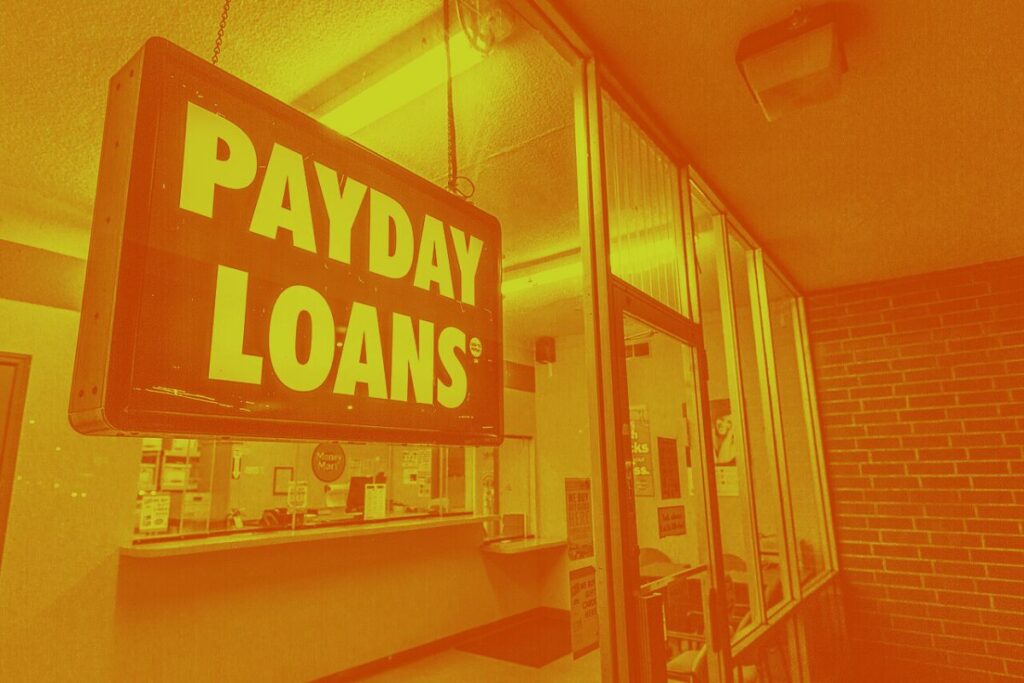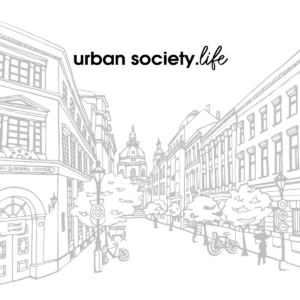An Abolitionist Strategy to Debt

That is your first of 1 free tales this month. Turn out to be a free or sustaining member to learn limitless articles, webinars and ebooks.
When people can not meet their primary wants with out turning to debt, they face threats to their human dignity. Survival debt — debt that people incur to outlive and dwell a life with dignity — is inherently intimidating and degrading.
An individual doesn’t have the liberty to acquire a way of life according to human dignity if the one technique of buying housing, transportation, meals, medical care or an training is to incur debt. Many indebted households can barely survive, a lot much less vivir sabroso. Those that incur debt to satisfy primary wants should work, regardless of understanding that the fruits of their labor will likely be diverted to repay debt — whereas they nonetheless battle simply to satisfy primary wants, not to mention accumulate the mandatory sources to climate future emergencies or to construct financial savings for retirement.
In my new ebook, “Dignity Not Debt: An Abolitionist Strategy to Financial Justice,” I argue that we must always transfer towards abolishing survival debt solely. By permitting credit score to be the one resolution for survival, policymakers are accepting the excessive probability that people will in the end have to sacrifice requirements later to repay that debt.
From a human dignity lens, then, extractive debt — debt that primarily enriches a celebration apart from the indebted particular person or their family and gives no substantial profit to the indebted particular person or family — shouldn’t exist, both. Whether or not they come within the type of predatory lending or predatory municipal fines, insurance policies that depend on extraction and dispossession for useful resource era should be rejected. Sadly, nevertheless, underneath the free-market fantasy, nothing prohibits treating folks as instruments for others’ acquire, as long as the result’s general wealth maximization.
Once I first got down to analysis whether or not any students or activists had advised an abolitionist strategy to debt, I got here throughout the Debt Collective, a union of debtors that goals to “construct a motion to abolish money owed and create a world the place nobody has to tackle debt to outlive.”
However I didn’t assume that abolishing debt altogether was real looking or essentially fascinating. Simply as releasing all prisoners wouldn’t dismantle the jail industrial complicated, erasing all present money owed wouldn’t resolve the underlying family debt issues on this nation.
Simply as Angela Davis’s abolitionist strategy exhibits that prisons are out of date — pointless, ineffective and inhumane — an abolitionist strategy to survival and extractive debt goals to show that survival debt and extractive debt are out of date.

Chrystin Ondersma, left, is the writer of “Dignity Not Debt.” (Photographs courtesy UC Press)
One other lesson from abolitionism within the family debt context is the idea of “non-reformist reform.” As jail abolitionist Ruth Wilson Gilmore explains, legal justice reforms ought to “unravel relatively than widen the web of social management by means of criminalization.” Within the family debt context, reforms ought to “unravel relatively than widen” the web of unjust and inequitable family debt — a web deeply interwoven with the carceral state.
How can abolitionism assist consider particular family debt coverage proposals? If we undertake the questions that the grassroots abolitionist group Important Resistance asks when evaluating numerous legal justice proposals, we would ask: Does this coverage cut back the reliance on debt as a way for survival? Does this coverage problem the notion that debt is an answer to poverty and inequality? Does this coverage cut back the dimensions of credit-based dispossession?
America won’t ever have a simply and equitable family panorama with out the abolition of survival debt and all extractive debt, which requires rethinking not simply debt coverage, however all financial coverage. As a substitute, I urge us to think about an financial panorama during which such types of debt now not exist, and to work collectively to carry us nearer to such a world.
Abolishing survival debt requires reasonably priced housing, utilities, clothes, training, well being care and transportation. Authorities applications that provide debt as the one or major methodology of acquiring well being care, housing, transit and different primary wants are inconsistent with an abolitionist strategy to survival debt.
The federal government ought to acknowledge the burden of counting on automobiles to get to work, college and physician’s appointments. Moderately than having no selection however to tackle a automotive mortgage to get to work, everybody ought to have public transit choices. With public transit choices, automotive loans would all the time fall solely underneath the class of alternative debt, not survival debt. If the federal government can not present the mandatory public transit infrastructure, it should subsidize automobile purchases for the poorest households — and never solely within the type of credit score.
Households should be capable of survive emergencies with out turning to credit score. Throughout the COVID-19 pandemic, the federal authorities understood that almost everybody was dealing with an revenue shortfall and stepped in to offer unemployment advantages and stimulus checks to a whole lot of hundreds of thousands of Individuals. Think about if these checks needed to be repaid.
But, when households face a equally sudden expense or lack of revenue for causes apart from a world pandemic, they don’t have entry to grants, simply credit score. New York Metropolis presents emergency grants — as many as one per family per 12 months — to these unable to satisfy an expense attributable to an “surprising scenario or occasion.” Nonetheless, these grants are literally loans that should be repaid, except the family revenue derives from Social Safety advantages. Though the reimbursement is predicated on revenue, households tapping such loans are unlikely to have surplus revenue to repay them, regardless of their being interest-free. The reimbursement obligation thus creates stress and hardship for households. If town supplied grants as a substitute of loans and centered on neighborhood outreach to make sure accessibility, this system may very well be according to an abolitionist strategy to survival debt.
Healthcare reform would dramatically cut back reliance on debt for survival. Residents of different upper-income international locations nearly by no means incur medical debt, a lot much less crushing medical debt. Even international locations that enable personal insurers, resembling Germany and the Netherlands, sharply restrict out-of-pocket bills. France’s single-payer system gives free medical look after all and makes protection obligatory; the federal government pays for its well being care system by means of payroll taxes, earmarked revenue taxes, and taxes levied on tobacco, alcohol, and the pharmaceutical industries. The German well being care system, funded by means of common wage contributions at 14.6% shared equally by staff and employers, gives protection through Krankenkasse or “illness funds.” Hospitalization co-pays are capped at a most of 280 euros — about $315 — for a 28-day keep. Physician visits haven’t any copay, inpatient care is 10 euros a day, and prescribed drugs vary from 5 to 10 euros. Medical debt is all however unprecedented in Germany, and self-reported unmet medical wants are very low.
Guaranteeing that people don’t want to show to credit score to outlive within the first place can even curtail extractive debt, since a lot of the credit score on which individuals rely for survival is extractive — payday loans, auto title loans, overdraft charges and extra.
Present family debt coverage, rooted in free-market myths, doesn’t even acknowledge the extractive nature of some debt. Whereas the free-market fantasy acknowledges the potential of fraud, it sees these cases as anomalous relatively than endemic.
However even when policymakers acknowledge and goal extractive debt, there’ll all the time be incentive to make debt extractive so long as folks want debt to outlive and to attain alternatives. It’s simply too worthwhile for lenders to stop pursuing, and regulators will always play catch-up; when some states banned payday loans, lenders simply switched to small-dollar installment loans that proceed to harm debtors.
Offering debtors with extra data or growing efforts to stop fraud won’t all the time assist, both. Many debtors are so determined for funds that they haven’t any selection however to simply accept predatory phrases. When requested what the utmost is they might have paid to entry a payday mortgage, 37% of payday mortgage debtors responded that they might have accepted the loans on any phrases supplied.
No quantity of transparency or monetary training will repair the actual drawback, which is that these debtors had no selection however to show to credit score to satisfy primary wants, irrespective of how onerous the phrases. And these households could have bother repaying the debt, even absent any fraud or predatory phrases.
One may argue that it’s pressing to bolster the regulatory equipment and improve the penalties for client credit score violations. However given what we all know, concentrating on fraud straight will not be the perfect use of political capital. Firms can simply reap the benefits of shoppers so long as they disclose the phrases of the mortgage—phrases that debtors typically don’t perceive, or which debtors could really feel they haven’t any selection however to simply accept.
Extra substantive restrictions on lenders could higher cut back extractive debt – for instance, think about that lenders couldn’t acquire on loans if, when issuing the mortgage, they failed to make sure that the borrower had the flexibility to repay the mortgage – however such restrictions might also face extra resistance and require extra political capital to attain.
Regulation of extractive debt additionally provides the phantasm that debt is secure, and that forcing people to show to debt for survival is an appropriate method for a society to perform.
Limits on debt assortment and the growth of exemptions may assist defend the human dignity of households. Eage garnishment and checking account garnishment ought to be prohibited except the lender exhibits that the person can proceed assembly their primary wants whereas repaying the debt. As well as, nobody ought to ever be arrested merely for failing to repay their debt.
Courts have begun adopting guidelines that restrict the flexibility of lenders to make use of the courts to gather. They may additionally start to require proof of precise service, quantity of debt, and possession by a creditor or debt collector earlier than issuing default judgments or implementing debt assortment. Courts might refuse to implement debt assortment or creditor actions with out proof that the borrower has non-exempt revenue or belongings. Chapter courts can refuse to categorise family debt as “client debt” since most households didn’t incur their debt voluntarily and strategically, offering extra households entry to a speedy discharge with out leaping by means of the means-test hoops.
All of those efforts respect human dignity and keep away from entrenching survival debt and debt that’s extractive. As Important Resistance reminds us, abolitionism is “growing sensible methods for taking small steps that transfer us towards making our desires actual and that lead us all to imagine that issues actually may very well be completely different. It means residing this imaginative and prescient in our every day lives.”
Excerpted from Dignity Not Debt: An Abolitionist Strategy to Financial Justice by Chrystin Ondersma, revealed by College of California Press. © 2024 by Chrystin Ondersma.
Do you’ve gotten a non-fiction ebook associated to city coverage that was just lately revealed or forthcoming? Attain out to Subsequent Metropolis’s editorial crew to submit a ebook excerpt for publication.
Featured photograph: Cash Mart payday loans and verify cashing retailer in Sacramento, California. (Picture by Tony Webster / Wikimedia Commons, with edits by Subsequent Metropolis)





